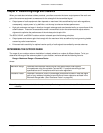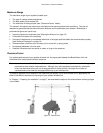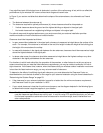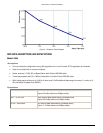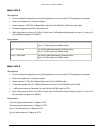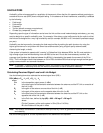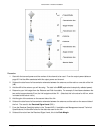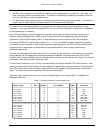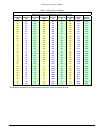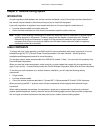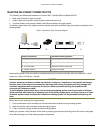
Tsunami MP.11 Antenna Installation
Copyright © 2006 Proxim Wireless Corporation. All rights reserved. 33
SELECTING THE CORRECT CONNECTOR TYPE
The following are differences between the Tsunami MP.11 Model 5054 and Model 5054-R:
• Male versus Female N-type connector
• Indoor install and long coax versus Outdoor install and short coax
• Low-loss antenna coax versus outdoor-rated Ethernet cable and surge arrestor
All cabling components of the outdoor antenna system come with standard-N type connectors as depicted in the
following table.
Table 3. Standard N-Type Connector Diagram
A B C D
Cabling Component Standard-N Cabling Systems
A TMP 5054-R / 5054 (5054 shown) Standard-N female / male
B Surge arrestor Standard-N female on both ends
C Low-loss cable Standard-N male on both ends
D Outdoor antenna Standard-N female
Note that the gender of the connector is not determined by the connector’s thread, but by its center pin; a solid
center pin = male, a hollow pin = female.
DANGER!
Outdoor antennas and antenna cables are electrical conductors. Transients or electrostatic discharges
that may occur at the antenna (for example a lightning strike during thunderstorms) may damage your
electronic equipment and cause personal injury or death to persons touching the exposed metal
connectors of the antenna cable.
To avoid damage and personal injury, the entire antenna cabling system must be grounded at all times.
When installing, disconnecting or replacing one of the cabling components, you must ensure at all times
that each exposed metal connectors of the antenna cabling system will be grounded locally during the
work.
When mounting or replacing the surge arrestor:
1. First connect each of the connectors of the low-loss antenna cables to the grounding system.
2. Next connect the cable connector to the grounding system.
3. Finally connect the surge arrestor to the grounding system.
Before you proceed, verify that each of the items is properly grounded and that the ground will not be interrupted
when disconnecting one of the antenna system components.



